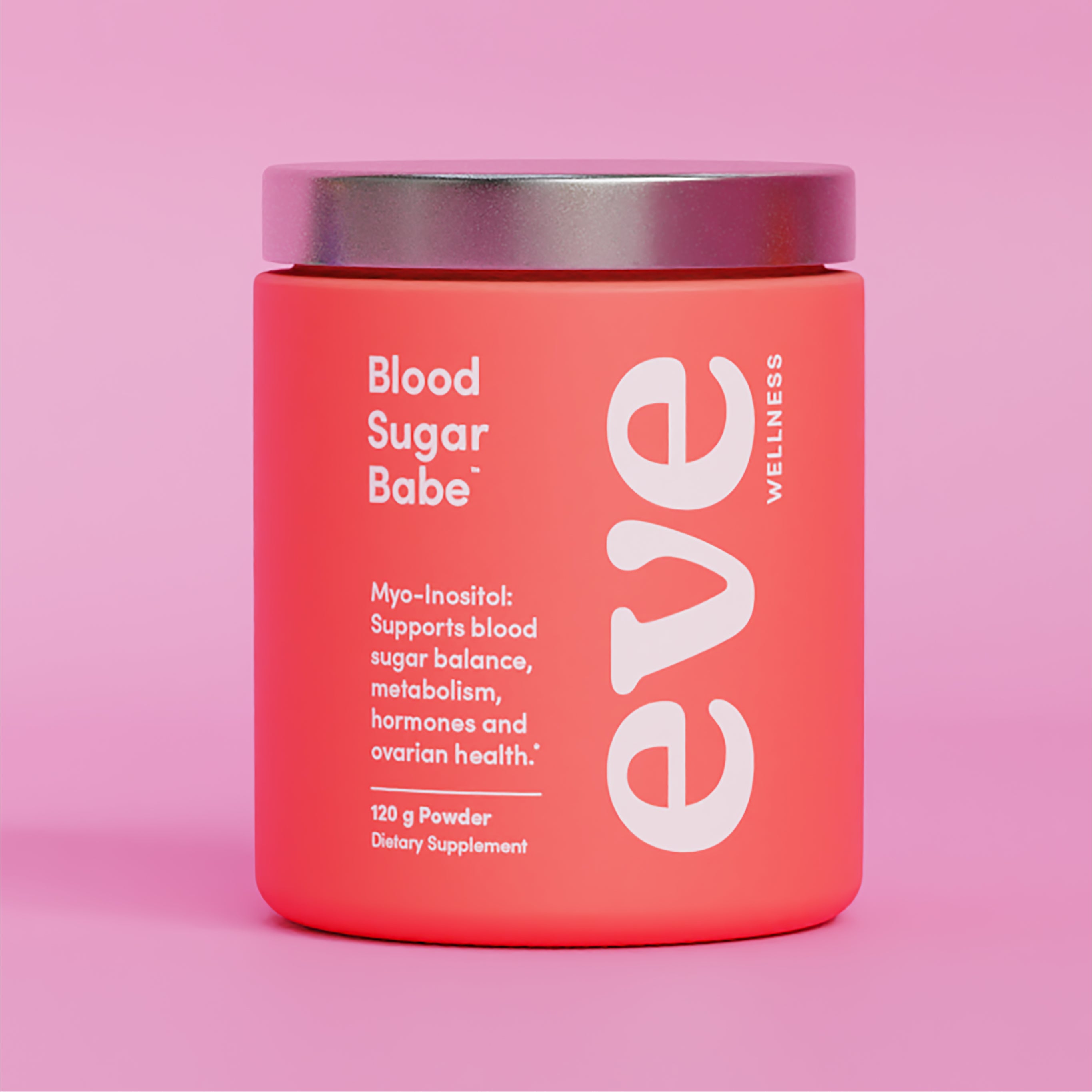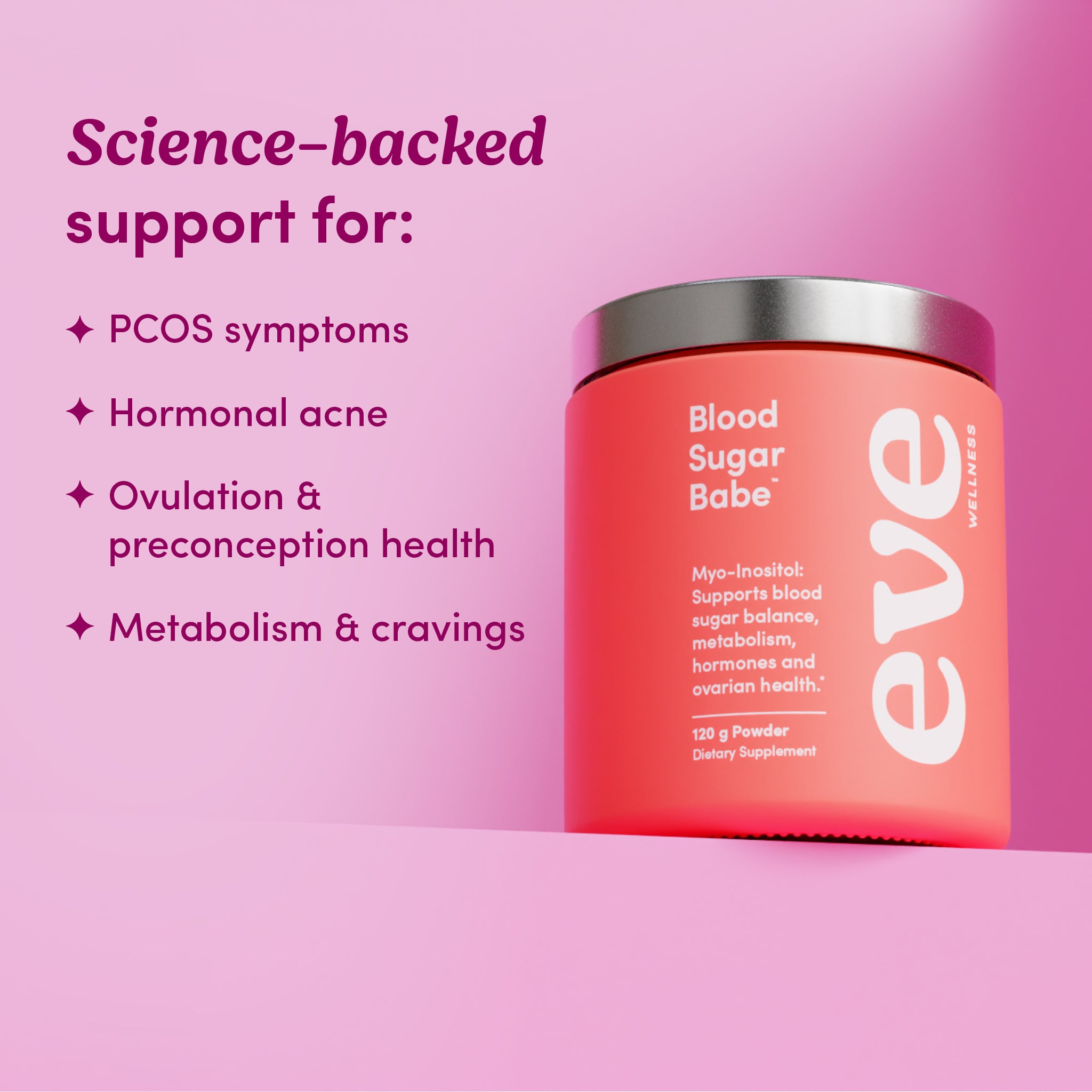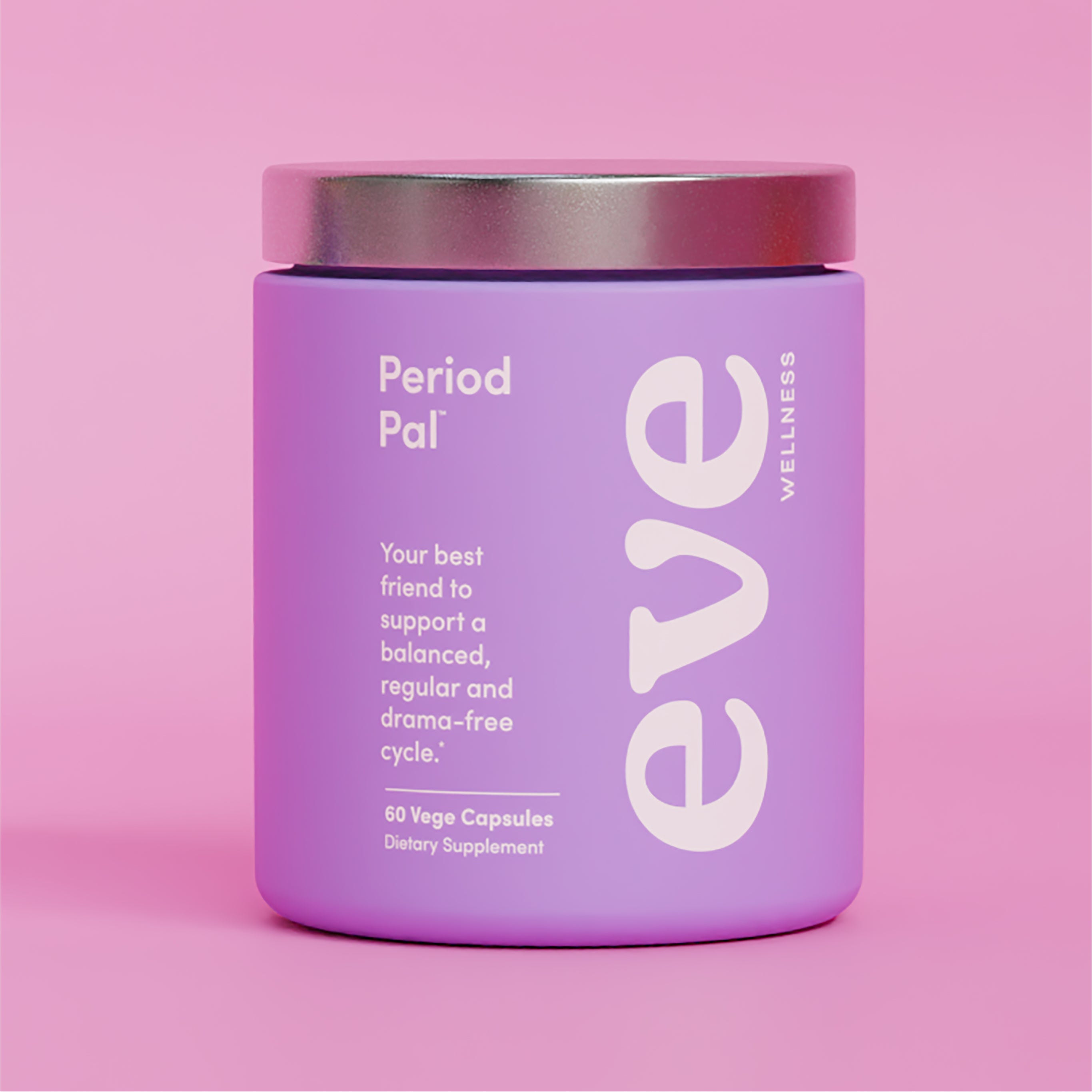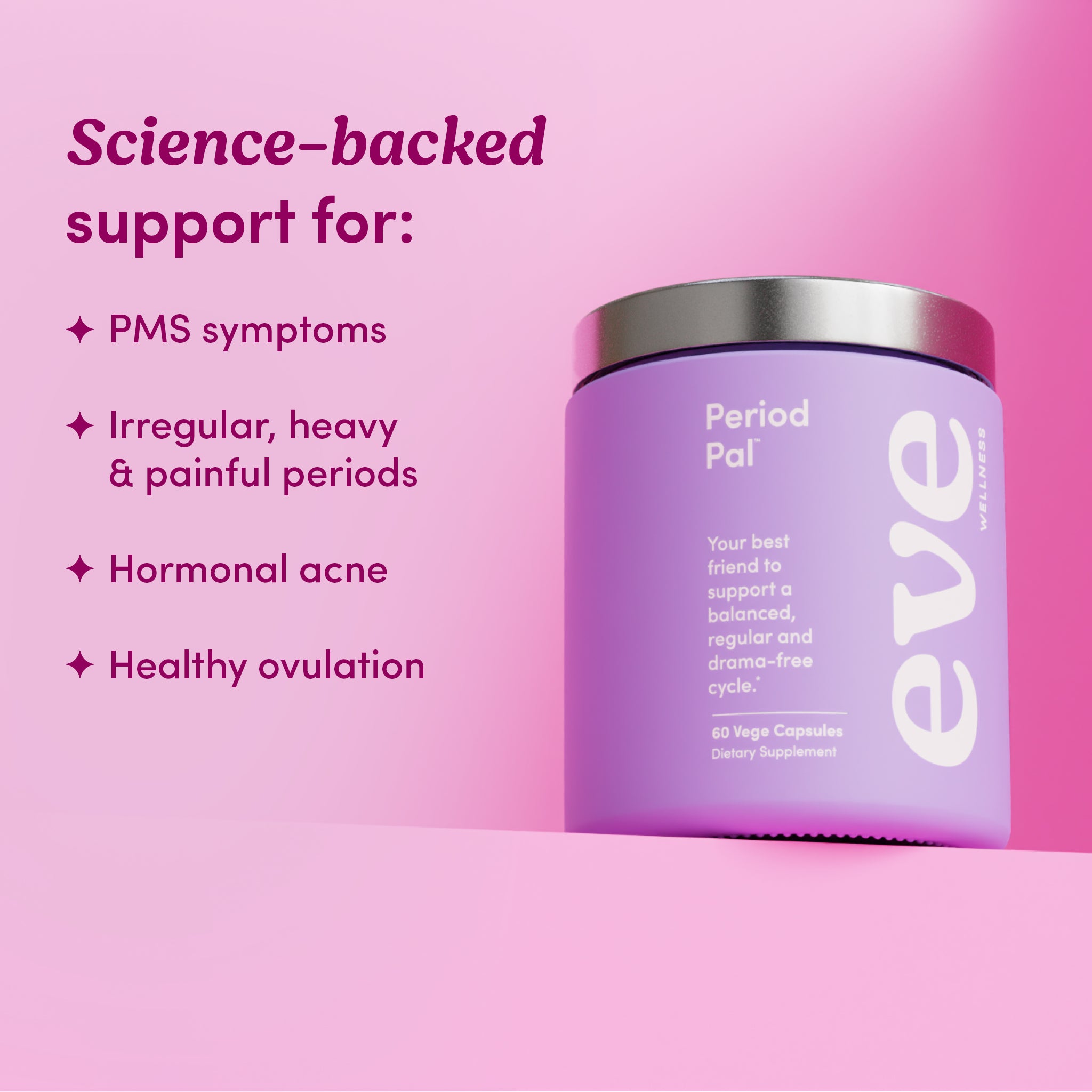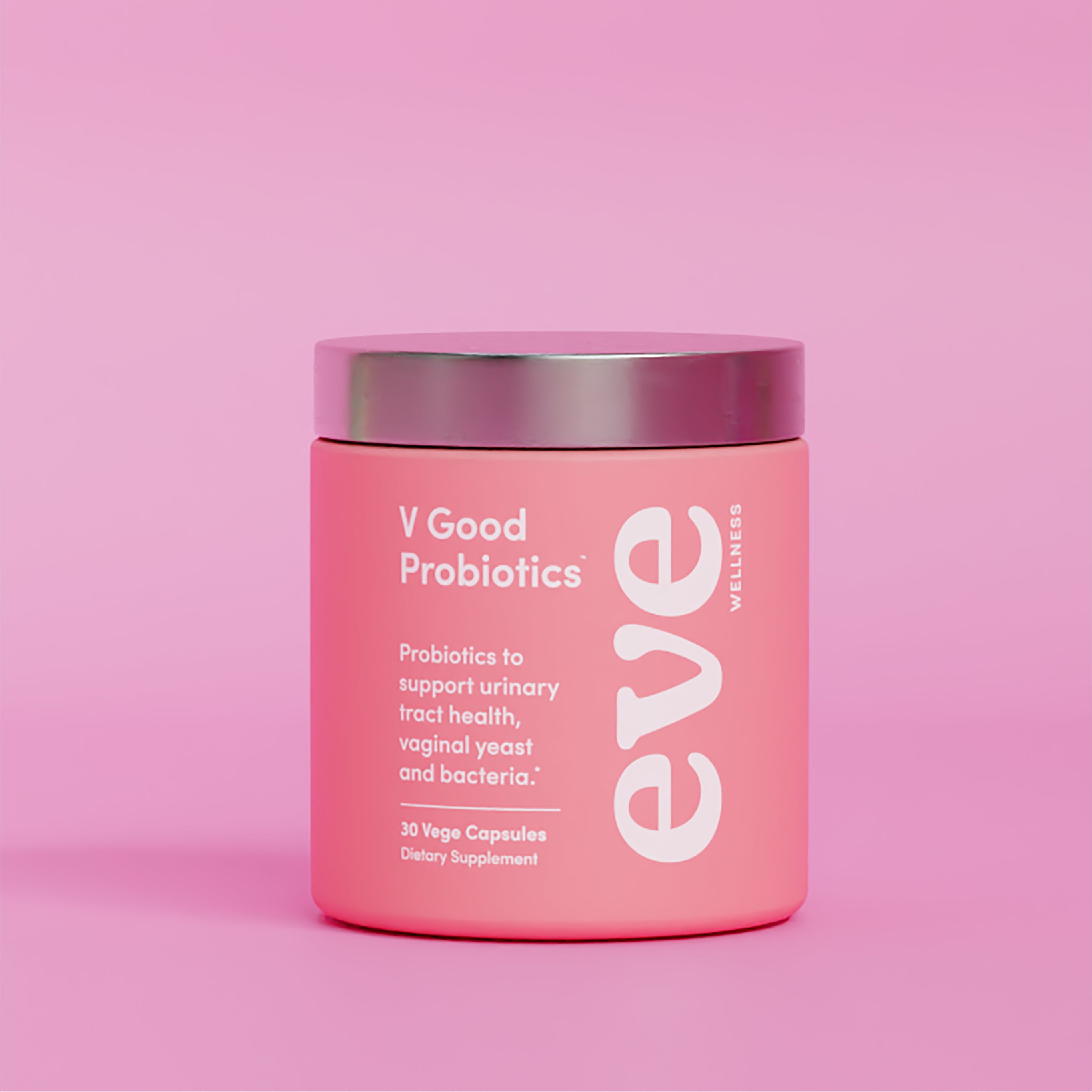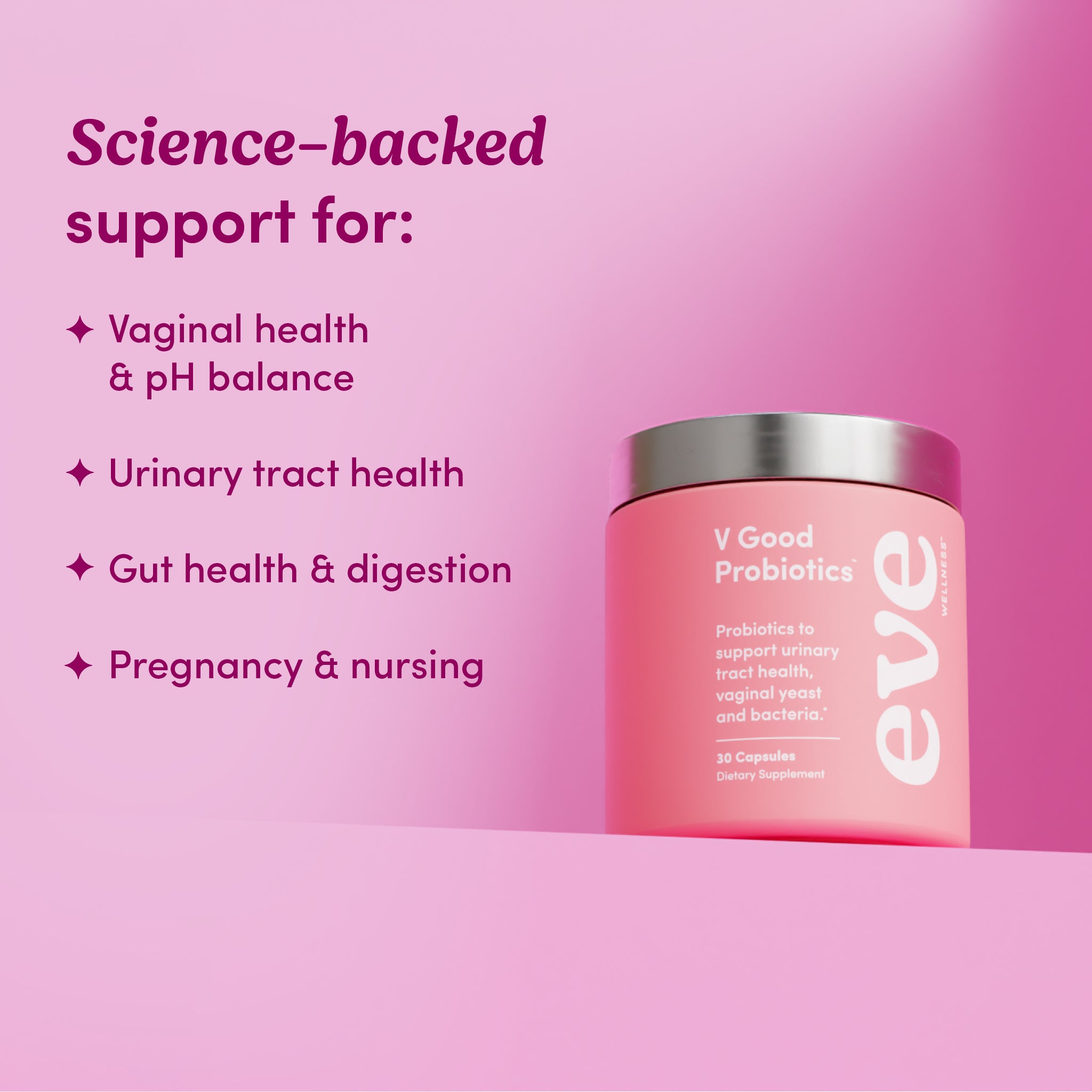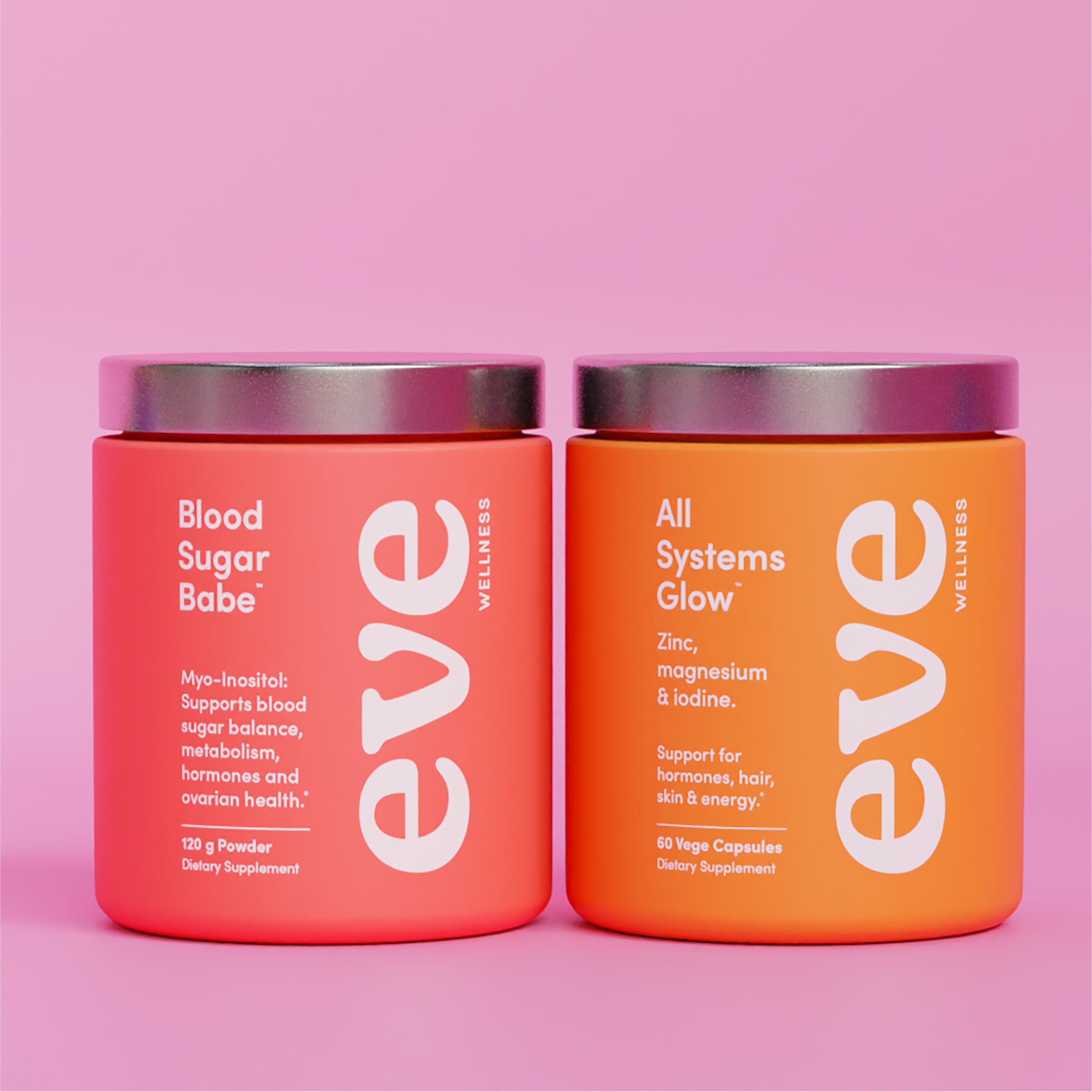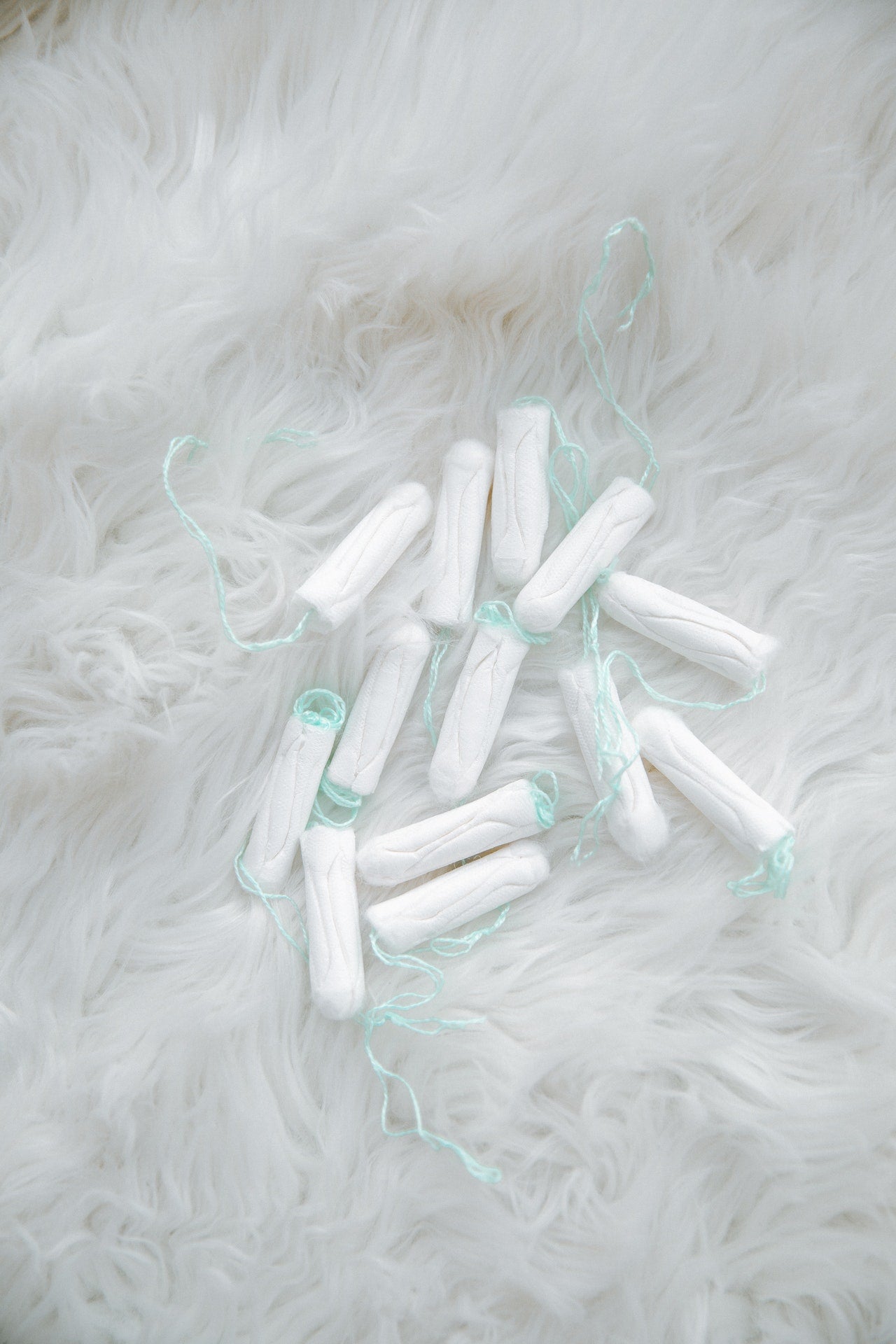It’s a common misconception that losing your period for months or even years at a time ‘just happens’, ‘is nothing to worry about,’ and our favourite myth: is ‘totally fine if you don’t want to have a baby right now.’
The truth is: if you are female, your period is an essential monthly messenger that gives you valuable insights into your overall health and your hormones. Being of reproductive age and not having a period is a sign from your body that something is up.
While you’ll want to check in with a GP to rule out the more obvious causes, like menopause or ya know—a bun in the oven; here’s why periods are important, and 3 key reasons why yours might have gone M.I.A.
Periods are an important indication of your health
As endocrinology professor Jerilynn Prior puts it, “ovulatory cycles are both an indicator and a creator of health.”
The hormones produced in a healthy cycle aren’t just essential for baby making—we need them to support our bones, skin, moods, gut, joints, energy, metabolism, and libido as well.
Having a regular cycle is a good sign that your body is at least producing these key sex hormones—oestrogen & progesterone; even if they aren’t in the nicely balanced ratios we like to strive for.
It’s absence is a sure sign that your hormone health is in need of some TLC, and is well worth investigating.
Note: the bleed that you might have every 28 days while on the pill isn’t so much a period, but rather a withdrawal bleed in the break from synthetic hormones—but that’s a conversation for another day.
Here are three factors that can lead to missing periods, or ‘amenorrhea.’
1. Your body is stressed - physically, psychologically or otherwise
The hypothalamus is a small gland inside the brain that plays an important role in recognising and responding to stress, as part of the HPA-axis.
Hypothalamic amenorrhea is more or less the fancy name given to an adaptation of the female body to intense physical or psychological stress; and is commonly associated with overexercising, undereating, or being at a lower body weight than what’s natural and healthy for you.
Why does this happen?
Physiologically, your body has two priorities:
- Survival; and
- Reproduction.
When we train too much and eat too little, the hypothalamus starts to get the vibe:
“This world we’re living in is awfully demanding, and the food supply is a bit iffy? Probably best to put a hold on reproduction for the time being, and conserve energy in case we need it to survive.”
It then proceeds to tell the pituitary gland to downregulate both follicle-stimulating hormone (FSH) and luteinizing hormone (LH)—two hormones that stimulate the ovaries and support ovulation.
Without the usual communication from the brain, the ovaries essentially take a break and ‘go to sleep’ for the time being. The result of this is usually lower levels of both oestrogen and progesterone, and no monthly check in with mother nature.
2. Your androgens are higher
Androgens are a group of “male” hormones that include Testosterone, DHEA, etiocholanolone and androstenedione. Women need them too, just in much smaller amounts than men do.
Polycystic Ovarian Syndrome, or PCOS is a common hormonal condition that occurs when androgens are much higher than the optimal range, which can lead to long cycles, irregular cycles, or no cycle at all.
Why does this happen?
While a hormonal condition, PCOS is often driven by excess insulin or insulin resistance, which increases testosterone and other androgens and impairs ovulation—stimulating the ovaries to make more testosterone instead.
Along with absent or irregular cycles, PCOS can lead to:
- Weight gain;
- Unwanted hair growth,
- Hair loss;
- Difficulty falling pregnant;
- Acne & oily skin.
3. You've recently quit hormonal contraception
It can take longer than expected for your natural cycles to resume when you come off hormonal contraception (such as the pill, patch, ring, depo shot, and hormonal IUD).
As a general rule, most women will see their periods return after 3 months off the pill.
But if your periods were irregular before starting hormonal contraception, or you went on the pill shortly after getting your period for the first time, it will likely take a little longer for your hormones to start cycling again.
Why does this happen?
The synthetic estrogen and progestins in these forms of birth control suppress the production of your own natural versions of these hormones, and it can take a while for your body to start making them again when you stop taking them.
When your brain starts talking to your ovaries again, you can expect it to be a little ‘awkward’ at first, especially if this line of communication has been suppressed for a long period of time—as is the case with many women.
While post-pill amenorrhea is a fairly common occurrence, it shouldn’t always be assumed that other factors aren’t at play. The pill can do a great job at masking underlying hormone conditions, such as the above: hypothalamic amenorrhea and PCOS.
If it’s been 6 months or more, it’s a good idea to get peace of mind and find out what’s going on.
The bottom line
Being of reproductive age and going months or even years without a period is a sure sign from your body that something is up. There are different reasons why this might be the case, each with different hormone pictures, and requiring different approaches in supporting your body back to balance.
Looking for extra support? Try Period Pal - every woman's best friend to support a balanced, regular and drama-free cycle.
